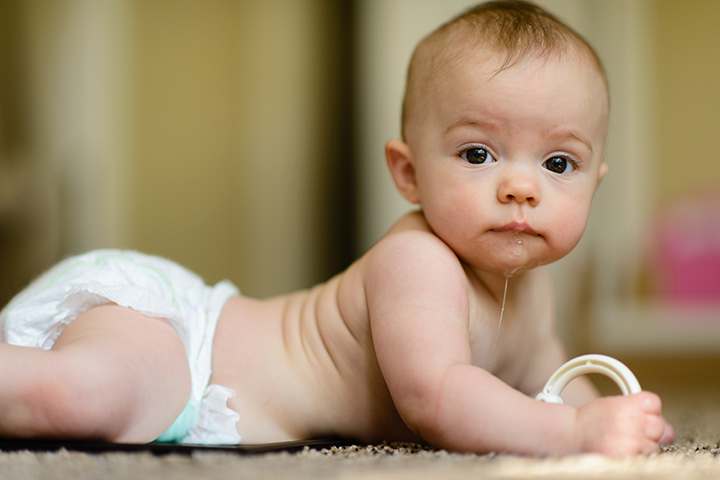
As a new mom, you may be wondering if it is okay to let your baby watch TV. You might have heard that it can negatively impact their development. In this article, we will explore whether or not TV stops a baby’s development.
Table of Contents
What Studies Say About TV and Babies
Several studies have shown that watching TV can have a negative impact on babies’ development. One study found that babies who watched TV for more than two hours a day had lower cognitive scores at 14 months than babies who watched less TV. Another study found that every hour of TV watched per day at 29 months was associated with a decrease in vocabulary and math skills at 5 years old.
The American Academy of Pediatrics (AAP) recommends that children under 18 months avoid screen time altogether, except for video chatting. Between 18 to 24 months, the AAP suggests limiting screen time to high-quality programming that parents watch with their children. For children 2 to 5 years old, the AAP recommends no more than one hour of screen time per day.
Why TV Can Be Harmful to Babies
TV can be harmful to babies for several reasons. First, babies need human interaction and engagement to learn and develop. When a baby is watching TV, they are not interacting with people or their environment. They are passive observers, which can hinder their development.
Second, TV can overstimulate a baby’s brain. Babies need time to process and absorb new information. When they are watching TV, they are bombarded with fast-paced images and sounds that can overwhelm their developing brains. This can lead to difficulty with attention, memory, and learning.
Finally, TV can interfere with a baby’s sleep. The blue light emitted by screens can disrupt the production of melatonin, a hormone that helps regulate sleep. This can lead to difficulty falling asleep and staying asleep, which can negatively impact a baby’s development.
Alternatives to TV for Babies
If you are looking for alternatives to TV for your baby, there are several options. First, provide plenty of opportunities for your baby to interact with you and their environment. Talk to your baby, read books together, and encourage exploration and play.
Second, provide age-appropriate toys and activities that stimulate your baby’s senses and promote exploration and learning. Simple toys like rattles, soft blocks, and board books can be great for babies.
Finally, consider taking your baby on outings to places like the park, library, or children’s museum. These experiences can provide valuable learning opportunities for your baby and help them develop social skills and a love of learning.
Conclusion
In conclusion, TV can have a negative impact on a baby’s development. While it may be tempting to use TV as a way to keep your baby entertained, there are better alternatives that can promote healthy development and learning. By providing plenty of opportunities for interaction, exploration, and play, you can help your baby thrive.
If you have any concerns about your baby’s development or screen time use, talk to your pediatrician. They can provide guidance and support to help you make the best choices for your baby.
Frequently Asked Questions
Q: How much TV is too much for a baby?
The American Academy of Pediatrics recommends that children under 18 months avoid screen time altogether, except for video chatting. Between 18 to 24 months, the AAP suggests limiting screen time to high-quality programming that parents watch with their children. For children 2 to 5 years old, the AAP recommends no more than one hour of screen time per day.
Q: Why is TV bad for babies?
TV can be harmful to babies because it can hinder their development, overstimulate their brains, and interfere with their sleep. Babies need human interaction and engagement to learn and develop, and watching TV does not provide that. Additionally, the fast-paced images and sounds of TV can overwhelm a baby’s developing brain and negatively impact learning and attention. Finally, the blue light emitted by screens can disrupt a baby’s sleep, which can negatively impact development.
Q: What are some alternatives to TV for babies?
Alternatives to TV for babies include providing plenty of opportunities for interaction, exploration, and play. Talk to your baby, read books together, and encourage exploration and sensory experiences. Provide age-appropriate toys and activities that stimulate your baby’s senses and promote learning. Consider taking your baby on outings to places like the park, library, or children’s museum for valuable learning opportunities.
Q: Can TV help babies learn?
While there are educational programs for babies and young children, research suggests that TV is not an effective way for babies to learn. Babies need human interaction and engagement to learn and develop, and watching TV does not provide that. Additionally, the fast-paced images and sounds of TV can overwhelm a baby’s developing brain and negatively impact learning and attention.
Q: What should I do if I have concerns about my baby’s development or screen time use?
If you have concerns about your baby’s development or screen time use, talk to your pediatrician. They can provide guidance and support to help you make the best choices for your baby.
